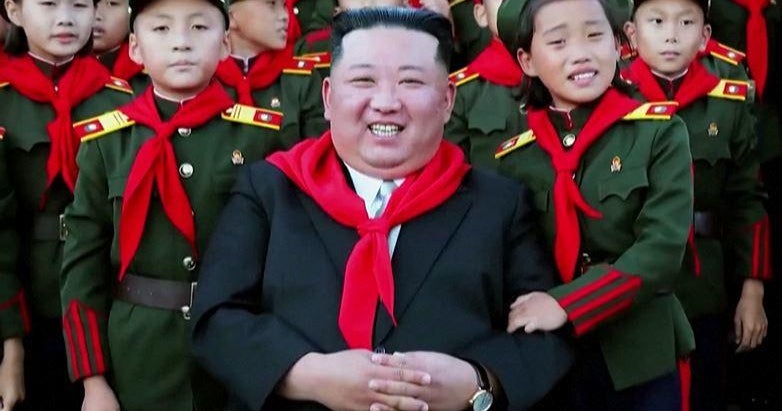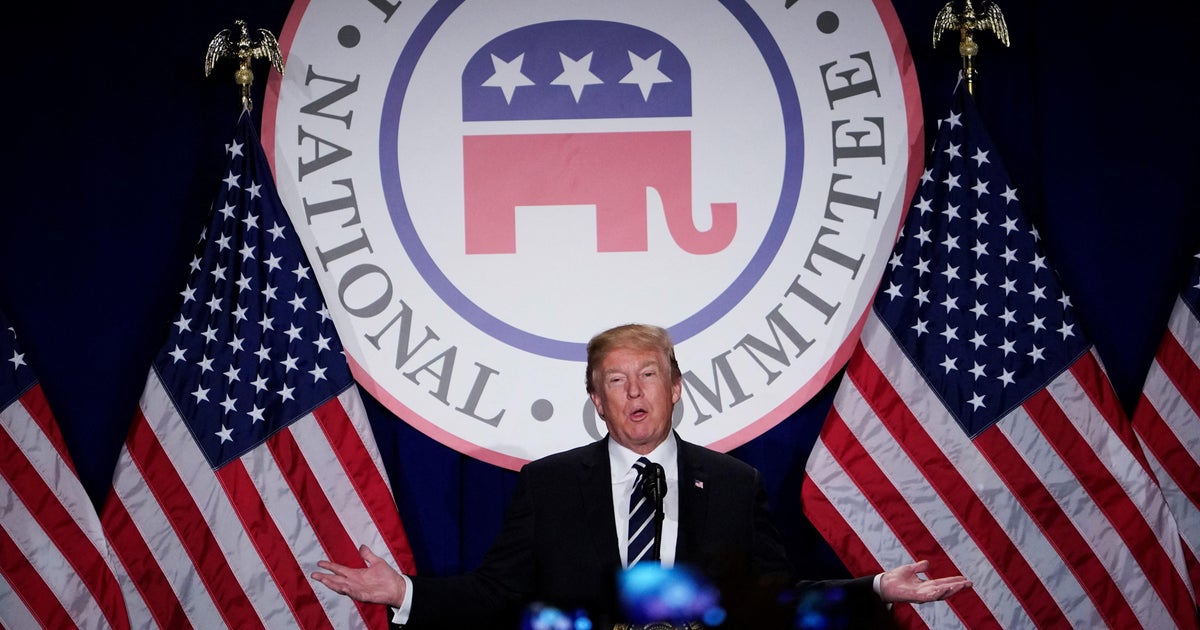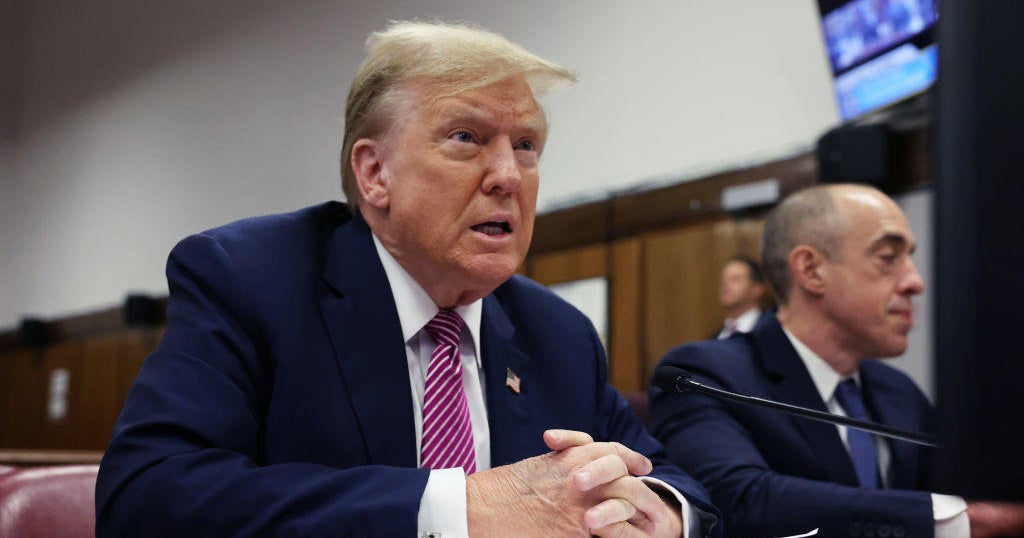Trump administration's shadow war with North Korea likely to intensify in coming weeks
The Trump administration's shadow war with North Korea is set to intensify in the next three weeks, as Pyongyang appears to be preparing an end to its more than 18-month moratorium on testing of its nuclear program, and as North Korean leader Kim Jong Un's self-imposed year-end deadline for diplomacy draws near. A trio of events looms at the year's end, including North Korea's plenum — a rare gathering of senior leaders in Kim's ruling Worker's Party — an ominously promised "Christmas gift" that is presumed to be a weapons test, and Kim's planned New Year's speech.
The debate among national security analysts is largely not whether Kim Jong Un will test, but rather, which technology he will display. Those details will influence the magnitude of the U.S. response, but it is still unclear how President Trump will react. The consensus among most national security analysts is that a test would demand a strong response, but that President Trump would be unlikely to imperil the prospects for diplomacy with North Korea, which has been the centerpiece of his foreign policy.
"We'd like to have continued negotiations," National Security adviser Robert O'Brien told Face the Nation on Sunday, just hours after North Korea said it had conducted a "very important test" at a satellite-launch facility. He added that the Trump-appointed special representative for North Korea, Steve Biegun, would soon travel to the region but gave no indication that he would talk to any officials from Pyongyang. South Korea's foreign ministry also confirmed Friday that Biegun is travelling to Seoul this weekend. Up to now, North Korean officials sent to negotiate with the U.S. have either been unwilling or unable to follow through on what Kim has personally promised.
Now the Trump administration is preparing for an array of possibilities, including a potential North Korean launch of "space vehicles using long-range ballistic missile technology" or even a test launch of intercontinental ballistic missiles (ICBMs), which are a delivery mechanism for a nuclear warhead. U.S. Ambassador to the U.N. Kelly Craft spoke explicitly about the range of potential actions to reporters on Wednesday following a briefing to the U.N. Security Council by Biegun.
Many North Korea watchers predict that Kim might hesitate to carry out an overt ICBM missile test. "I think generally, when we look at the nature and characteristics of North Korea's diplomacy, they build it up. Because to do things right away, you'd be losing all your leverage," Dr. Jung Pak, a former CIA analyst at the Brookings Institution, told CBS News.
Jean Lee, a North Korea analyst at the Wilson Center, similarly predicted that Kim is more likely to launch what he will refer to as 'space launch technology'. Yet even that would be provocative, since the U.N. bans North Korea from launching satellites, viewing it as a cover for testing ballistic missile technology. Some in the Trump administration also argue that satellite technology should be treated as a proxy for the ability to launch an ICBM. President Trump has not yet expressed a view on this.
"In the past few months, Kim Jong Un is really pushing the envelope following the agreement made with President Trump in Singapore not to test long-range missiles. And Trump has given Kim Jong Un a pretty wide berth to do all kinds of things that won't upset their dynamic," Lee added, referring to the two leaders' so-called friendship.
"Expect an increasing, crisis-like environment for the next 4-5 months," predicted former CIA analyst Sue Mi Terry. She added that Kim Jong Un is trying to gain leverage by creating a level of intensity similar to the "fire and fury" type rhetoric that the two nations engaged in back in 2017. At that time there was rampant speculation about potential use of U.S. military force including a preemptive "bloody nose" U.S. strike. But Terry doubted tension would escalate to that level again because "now we all know more about Trump," and North Korea likely observed that Mr. Trump is unwilling to use force in response to threats from Iran.
If the North Koreans continue to test short-range or multiple-launch missiles, that won't necessarily slam the door shut, said Frank Jannuzi, president of the Mansfield Center who served 15 years as the Democrats' Asia policy director on the Senate Foreign Affairs Committee. However, he added that "if the North Koreans escalate into nuclear testing or ICBMs, we'll likely find ourselves back into a 'fire and fury' exchange and other muscle-flexing that could make for a very dangerous 2020."
It would be dangerous, but it would not return the U.S. and the North to the brink of war, a former U.S. official familiar with the Trump administration's outreach argues.
"In 2017, it was managing a crisis. In 2020, it will be 'risk management'," this former U.S. official told CBS News. Yet any renewal of testing is sure to rattle regional allies. This former official said that one significant factor to watch in terms of escalation is whether an upcoming North Korean test crosses over or lands somewhere within Japanese territory.
"North Korea will do something and the U.S. will have to react," this former official said, but also suggested that this wouldn't cause tensions to boil over. With the 2020 U.S. election looming and its outcome uncertain, both sides want to maintain flexibility. "People are planning and preparing for action, but are not totally willing to walk away."
Camilla Schick contributed reporting.




